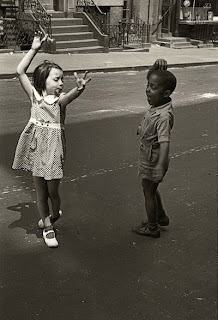It was published in the Guardian ( British daily leftish newspaper ) on the 19th of May ...it proves british teenagers have to go through the same trouble as you !
Good luck !!
Ten things never to say to a teenager
Son or daughter failing to knuckle down to the revision? Maybe you are partly to blame …
- The Guardian, Tuesday 19 May 2009
To an adult, a teenager's experiences may be laughable: to the teenager, they're real and often mysterious. Photograph: Getty
You're going blue in the face. For months, you've been issuing warnings to your teenager. You've nagged and pleaded, you've explained that time is running out. You've supplied all necessary books and materials. You've printed out past papers going back as far as the 90s. Heck, you've even cooked well-balanced meals. So why is the revision planner you provided in March still totally blank? At this age, you were glued to your desk, yet your teenager isn't. What have you done wrong?
From hormones to peer pressure, any number of issues can stop a young person working eff ectively. So, if there is a problem, it's possibly nothing to do with you. But to be sure, run your eyes over this checklist of motivational gems, otherwise known as the top 10 shortcuts to producing suffering and underachievement in your teenager.
1. Negative hypnotic suggestions: "You'll kick yourself when you open that letter in August!"
By depicting the hard world that awaits all slackers – homelessness, poverty, social exclusion – you hope to galvanise your teenager into action. And indeed maybe she'll reward you by staring a bit at her computer screen. Then she'll Skype again. Why the relapse? Hasn't she taken in what you said? The problem is, yes. As any hypnotist will tell you, you've planted a vivid image of failure in your teenager's mind, one to which her unconscious mind may become deeply attached.
2. Loose warnings: "You'll never get a proper job if you carry on like this."
Warnings can motivate if they're specific: "To get into law, you'll need a minimum 2.1 at university." (Though even that's not quite true.) But you're not being specific. No, you're bandying about vague terms. You really believe what they say about good degrees being "essential" to career success? Chew on this: John Major ruled the country on three O-levels; Richard Branson seems to be running the world on the same; Estelle Morris failed her A-levels (to which failure she ascribes her subsequent determination to succeed). Attitude matters more than where you went and what you got. Well, your teen's got plenty of attitude, right?
3. Labels: "You're lazy!"
He may well be "only interested in football". Would you accuse Sir Alex Ferguson of laziness? Meanwhile, the underlying issue (a study skills block, a difficulty with the subject, a personal conflict) remains unidentified, and therefore disruptive. Labels also tend to set problems in stone; yet humans are capable of evolving. Yes, even teenagers. The most you can say if you've noticed that Johnny hasn't done much revision is that you've noticed that Johnny hasn't done much revision.
4. Condescension: "You don't know the meaning of hard work!"
To an adult, a teenager's experiences may be laughable: to the teenager, they're real and often mysterious. Your job is to bridge that gap: why might your son be slamming doors? What's behind your daughter's procrastination? And don't expect them to know.
5. Comparisons: "Why, your little sister's got her act together!"
Perhaps you think you're acting responsibly by encouraging your teenager to notice how much better others are doing. But the best way to help is to stay in your own business. Your nieces and nephews are getting As and doing ballet; that's their business. Yours is to support your teenager. And a young person who knows that his parents' love isn't conditional on exam results will be confident and single-minded enough to do something well.
6/7. Carrots/sticks: "I will/won't buy you that nice car if you pass/fail."
Rewards and punishments are flip sides of the same coin, betraying (a) that you regard education as intrinsically dull or pointless, and (b) that you're desperate about grades.
8. Emotional blackmail: "I'm happy so long as you do your best."
Attaching your wellbeing to your offspring's performance can only be ethical if you're off ering to pay their rehab bills.
9. Disparaging time off: "Shouldn't you be working?"
Intellectually and emotionally, revision has to be the most demanding of all desk jobs. Without time off, people also underperform because, mysteriously, learning is consolidated through breaks and sleep. By now you probably suspect that there's nothing you can say without being held responsible for your teenager's academic downfall. But I know you've got one more trick up your sleeve:
10. Giving them The Look
I saw that.
And a few dos...
• Remember that attitude matters more than grades: this will help you and your teen to relax and, paradoxically, your teenager will perform better.
• Reflect on your own experience of exams to avoid passing down unprocessed anxiety or paralysing guilt.
• Panic may spread throughout your teenager's school environment, so stay calm for him.
• Disconnect your teen's sense of self from her grades: getting A* doesn't make her a star, nor is she a failure if she fails.
• Notice if you project a hopeless future: are you overlooking your teenager's talents and undermining your own parenting achievements?
• Allow your teen to have a different approach to revision – there's no "best way".
• Maddening behaviour (laziness, procrastination, slamming doors) often expresses underlying panic: address the root cause.
• Play down the importance of revision, usually exaggerated. "It's never too late to start", "Every little bit helps", "Just do 10 minutes, see how it goes" helps to get someone started.
• Offer support whatever the outcome – knowing that a parent's love is not grade-dependent can free up motivation.






